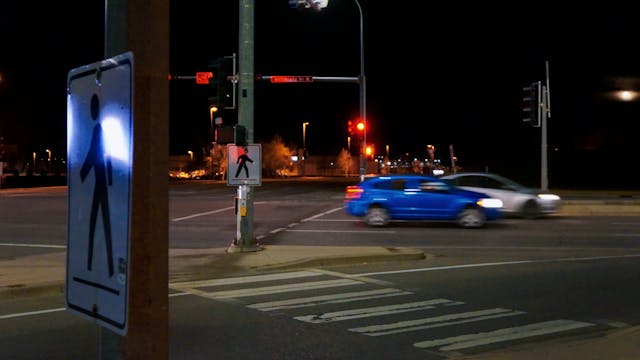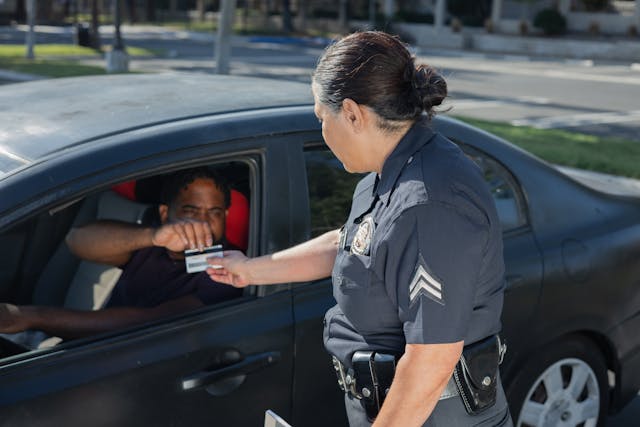- It is essential to record the interaction with a police officer during a traffic stop for safety and accountability purposes.
- Requesting the officer’s information can be helpful for follow-up or in case of issues arising later on.
- Take time to document all details after the stop ends, including officer and patrol car numbers, time, location, etc.
- Seek support from loved ones and consider filing a complaint or consulting an attorney if you believe your rights were violated.
Every driver on the road can potentially find themselves in the nerve-wracking situation of being pulled over by law enforcement. Whether for a routine traffic check or a suspected violation of the law, knowing your rights during these moments is imperative. Unfortunately, many are not fully informed about what their rights entail, leading to anxiety and potential missteps during these interactions. This comprehensive guide aims to give you the essential knowledge to handle such situations calmly, legally, and safely.
The Importance of Understanding Your Rights
Understanding your rights is not about finding loopholes in the law or resisting authority; it’s about protecting yourself from possible injustice and handling the situation confidently and calmly. Being informed can significantly impact the outcome of being pulled over, helping ensure you are treated relatively under the law. It also serves as a foundation for legal recourse should you experience unjust treatment.
5 Things to Do If You’re Pulled Over
There are several vital steps to follow if you are being pulled over by law enforcement. These include:
Contact a Professional
Legal help is essential in situations where your rights may have been violated. An experienced attorney can help you navigate the legal system and uphold your rights.
If you’ve been drinking or if there’s any chance you might exceed the legal blood alcohol content (BAC) limit, contacting a DUI lawyer should be your priority. Even if alcohol is not a factor, seeking legal counsel if you’re unsure about your situation can be beneficial. Lawyers specialize in protecting your rights and can offer invaluable advice on how to proceed during and after the stop.
Remain Calm and Polite
Your attitude and demeanor play a crucial role during traffic stops. Displaying nervousness or aggression can escalate the situation unnecessarily. Always address the officer respectfully and follow their instructions without argument. A calm and polite interaction may lead to a more favorable outcome and can prevent the situation from worsening.
Remember that the officer is doing their job and may have pulled you over for a valid reason. Being respectful can help de-escalate any tension and make the process smoother.
Provide Required Documents
You are legally required to show certain documents when a law enforcement officer requests, including your driver’s license, vehicle registration, and proof of insurance. Be prepared to present these documents promptly. However, be aware of your rights regarding what officers can demand without a warrant. They cannot search your vehicle without probable cause or your consent.
Know Your Consent Rights
You can refuse consent to search your vehicle if there is no warrant or probable cause. Understanding the distinction between voluntary consent and lawful search demands is crucial. While it might seem easier to comply, consenting to a search waives certain legal protections. If asked, you can respectfully decline a search by stating, “I do not consent to a search.”
However, if the officer has a warrant or probable cause, they can still search your vehicle without your consent. It is essential to know and understand your rights in these situations.
Record the Interaction
If it’s safe and feasible, record the interaction with the police officer. Use a dashboard camera or a mobile device. Recording can provide an objective account of the encounter and is legal in most jurisdictions when done in plain view. This not only protects you but also ensures accountability for all parties involved.
You may also request the officer’s name, badge number, and agency. This information can be used for follow-up purposes or in case of any issues that may arise.
After the Stop
Once the traffic stop concludes, document everything about the encounter, including the officer’s badge number, patrol car numbers, the time, location, and any other details you can recall. If you feel your rights were violated, consider filing a formal complaint with the appropriate authorities or consulting an attorney.
Consider also talking to friends or family members about the encounter and any concerns you may have. It can be a helpful way to process your emotions and get support.
Final Thoughts
Being pulled over can be an intimidating experience, but being well-informed about your rights can make all the difference. It empowers you to handle the interaction with law enforcement confidently and legally. Educate yourself on local laws and understand your rights to ensure you’re prepared for any traffic stops in the future. Remember, knowledge is the first step to protection.





